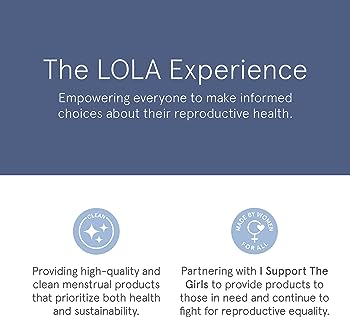Table of Contents
Personal hygiene is an essential aspect of overall health and well-being. For women, maintaining proper personal hygiene not only contributes to physical health but also fosters self-confidence and empowerment. In this article, we will explore the importance of women’s personal hygiene and discuss empowering choices and practices that can help women lead healthier, more confident lives.
Personal hygiene is an indispensable pillar of well-being that holds profound significance for women. Beyond its fundamental role in safeguarding physical health, maintaining proper personal hygiene is a powerful source of self-confidence and empowerment. This article delves into the multifaceted importance of women’s personal hygiene, emphasizing how it plays a transformative role in enhancing both physical and emotional health. Here’s an expanded exploration of this crucial topic:
1. Physical Health and Comfort:
A solid foundation of personal hygiene is essential to prevent a range of health issues that can affect women. Proper cleansing and care of the body, including regular handwashing, showering and maintaining feminine hygiene, are vital in warding off infections, skin irritations and unpleasant odors. This commitment to cleanliness ensures physical comfort and prevents the discomfort and distress associated with many hygiene-related health problems.
2. Preventing Infections:
Practicing good personal hygiene is an effective defense against infections that can be particularly common in women, such as urinary tract infections (UTIs) and yeast infections. Simple habits like proper intimate area hygiene and changing sanitary products regularly during menstruation can significantly reduce the risk of these issues. By prioritizing hygiene, women can enjoy better reproductive health and overall well-being.
3. Emotional Well-Being:
Women’s personal hygiene isn’t solely about physical health; it also has a profound impact on emotional well-being. Feeling clean and fresh enhances self-esteem and contributes to a positive body image. This emotional boost can be transformative, fostering a sense of self-assurance and empowerment.
4. Confidence and Self-Empowerment:
Confidence is intrinsically linked to personal hygiene. Knowing that you’ve taken the necessary steps to care for your body not only promotes self-assurance but also empowers you to face the world with greater resilience and a sense of control. This empowerment extends beyond physical appearance and resonates in all aspects of life.
5. Healthy Relationships:
Maintaining personal hygiene is a fundamental aspect of cultivating healthy and respectful relationships. It promotes open communication and understanding between partners and can be instrumental in self-care and intimacy. Healthy personal hygiene practices contribute to more fulfilling and satisfying relationships, fostering emotional connection and mutual respect.
6. Education and Empowerment:
Educating women about the importance of personal hygiene is an empowering step toward better health outcomes. Access to information and resources allows women to make informed choices about their hygiene practices, reducing stigma and barriers to care. This empowerment extends to informed decisions about feminine hygiene products, contraception and reproductive health.
7. A Holistic Approach:
Women’s personal hygiene is about more than just cleanliness; it encompasses a holistic approach to well-being. It’s about embracing self-care as a powerful tool for physical and emotional health. Practicing personal hygiene rituals can be a form of self-love, allowing women to prioritize themselves amid the demands of daily life.
In conclusion, women’s personal hygiene is a cornerstone of physical and emotional health, self-confidence and empowerment. Beyond its physical benefits, it fosters a sense of self-assurance and strength, enhancing women’s overall quality of life. By recognizing the transformative potential of proper personal hygiene, women can embark on a journey of self-care and empowerment, leading to healthier, more confident and more fulfilling lives.
Should you desire more in-depth information, it’s available for your perusal on this page: Women’s empowerment related to pregnancy and childbirth …
The Significance of Personal Hygiene for Women
Personal hygiene encompasses a range of practices that promote cleanliness and prevent illness. For women, it holds particular importance due to the unique biological and physiological aspects of their bodies. Here’s why personal hygiene is crucial:
Personal hygiene is a fundamental aspect of overall well-being that encompasses a wide array of practices designed to promote cleanliness and prevent illness. For women, personal hygiene takes on additional significance due to the unique biological and physiological aspects of their bodies. Here are compelling reasons why personal hygiene is of utmost importance for women:
Preventing Infections: The female reproductive system is complex and sensitive. Proper personal hygiene, including washing the genital area with mild, pH-balanced cleansers, helps prevent infections such as urinary tract infections (UTIs), yeast infections and bacterial vaginosis. Maintaining cleanliness in this region is crucial to minimize the risk of these often uncomfortable and sometimes recurrent conditions.
Menstrual Hygiene: Menstrual hygiene management is essential for women. Proper disposal of menstrual products, regular changing of pads or tampons and maintaining cleanliness during menstruation are vital to prevent infection, irritation and odor. Neglecting menstrual hygiene can lead to serious health issues, such as toxic shock syndrome (TSS).
Pregnancy and Postpartum Care: During pregnancy, a woman’s body undergoes significant changes, making hygiene practices even more important. Proper prenatal and postpartum hygiene helps reduce the risk of complications, infections and discomfort. Maintaining good hygiene is essential for the health of both the mother and the baby.
Breast Care: For breastfeeding mothers, keeping the breasts clean and dry is essential to prevent nipple infections and mastitis. Proper breast hygiene is crucial for the comfort and well-being of both the mother and the infant.
Overall Confidence: Good personal hygiene enhances a woman’s overall confidence and self-esteem. Feeling clean and fresh contributes to a positive self-image, which can have a profound impact on mental and emotional well-being.
Social and Professional Interactions: Maintaining personal hygiene is not only about physical health but also about fostering positive social and professional interactions. Feeling clean and confident allows women to engage more comfortably in social settings and workplace environments.
Self-Care: Practicing personal hygiene is a form of self-care. It signifies self-respect and self-love. Taking the time to care for one’s body can be a valuable act of self-compassion, promoting emotional and mental well-being.
Prevention of Body Odor: Good hygiene helps prevent body odor, which can be a source of discomfort and embarrassment. Regular bathing, using deodorant and wearing clean clothes all contribute to feeling fresh and odor-free.
Preventive Health: Proper hygiene practices can contribute to early detection of potential health issues. For example, regular breast self-exams as part of breast hygiene can help women identify abnormalities and seek medical attention promptly.
Respect for One’s Body: Personal hygiene is a way of showing respect and care for one’s own body. It acknowledges the importance of maintaining health and well-being as a top priority.
In conclusion, personal hygiene is a critical aspect of a woman’s life, safeguarding her physical health, emotional well-being and self-esteem. The unique biological and physiological aspects of a woman’s body make it even more vital to prioritize good hygiene practices. By doing so, women can lead healthier, more comfortable lives and better navigate the specific challenges and changes that come with their gender.
Don’t stop here; you can continue your exploration by following this link for more details: Menstrual Health and Hygiene

Preventing Infections
Proper hygiene practices, including regular bathing, can help prevent infections, especially in sensitive areas like the genital region. Cleaning the genital area helps reduce the risk of urinary tract infections (UTIs), yeast infections and bacterial vaginosis.
Proper hygiene practices, including regular bathing, play a crucial role in safeguarding our overall health and well-being. Paying special attention to sensitive areas like the genital region is not just a matter of personal comfort; it’s a fundamental step in maintaining a healthy body.
Cleaning the genital area goes beyond the realm of comfort; it’s a vital aspect of preventive healthcare. When you practice good hygiene in this area, you significantly reduce the risk of developing various uncomfortable and sometimes serious conditions. Here’s why it matters:
Urinary Tract Infections (UTIs): UTIs are often caused by bacteria entering the urinary tract. Proper genital hygiene, including wiping from front to back, helps prevent the transfer of harmful bacteria from the anal area to the urethra. This simple practice can substantially reduce the incidence of UTIs, which can be painful and lead to more severe kidney infections if left untreated.
Yeast Infections: Yeast infections, such as candidiasis, can be uncomfortable and disruptive to daily life. Maintaining a clean and dry genital area can help prevent the overgrowth of yeast, which is one of the leading causes of these infections.
Bacterial Vaginosis: Bacterial vaginosis is characterized by an imbalance in the naturally occurring bacteria in the vagina. Practicing proper genital hygiene, including avoiding harsh soaps and douching, can help maintain the delicate balance of these bacteria and reduce the risk of bacterial vaginosis.
In addition to preventing infections, good genital hygiene can enhance personal comfort, reduce irritation and promote healthy sexual relationships. It is essential to use mild, unscented soaps and warm water when cleaning the genital area and to avoid harsh chemicals or excessive douching, as these can disrupt the natural balance of the genital microbiome.
Remember that everyone’s body is unique and it’s essential to tailor your hygiene routine to your individual needs and preferences. By making genital hygiene a priority, you’re taking a proactive step towards maintaining not only physical health but also comfort and confidence in your everyday life. So, embrace these hygiene practices as a way to care for your body and promote your overall well-being.
You can also read more about this here: The Joint Commission: A Trusted Partner in Patient Care

Menstrual Hygiene
Managing menstruation is an integral part of a woman’s life. Using clean and appropriate menstrual hygiene products, such as sanitary pads or tampons, is essential to prevent discomfort and infections during menstruation.
Managing menstruation is indeed an integral aspect of a woman’s life and prioritizing menstrual hygiene is crucial for not only physical well-being but also overall comfort and confidence. Let’s delve further into why using clean and appropriate menstrual hygiene products is essential during this natural biological process:
Comfort and Confidence: Clean and appropriate menstrual hygiene products provide women with the comfort and confidence they need to carry on with their daily activities during their menstrual cycle. When you have the right products, you can move freely without worrying about leaks or discomfort.
Preventing Infections: Using sanitary pads, tampons or menstrual cups made from high-quality materials and changed regularly helps prevent infections. Poor menstrual hygiene can create a breeding ground for bacteria, potentially leading to conditions like urinary tract infections (UTIs) or vaginal infections.
Odor Control: Menstrual hygiene products are designed not only to absorb menstrual flow but also to control odor. This ensures that you can maintain a sense of freshness and hygiene throughout your period.
Reducing Environmental Impact: Many modern menstrual hygiene products are now designed with the environment in mind. Reusable options like menstrual cups and cloth pads can significantly reduce the environmental impact of disposable products, helping to minimize waste and plastic pollution.
Customized Solutions: The diversity of menstrual hygiene products available today allows women to choose the one that best suits their needs and preferences. Whether it’s the convenience of tampons, the eco-friendliness of menstrual cups or the simplicity of sanitary pads, there’s a suitable option for everyone.
Pain Management: Some menstrual hygiene products, such as heating pads or specially designed underwear, can also help manage the discomfort and pain associated with menstrual cramps. These products offer additional support during this challenging time of the month.
Education and Awareness: The promotion of proper menstrual hygiene is also about education and awareness. It’s essential to teach young girls and women about the importance of maintaining good menstrual hygiene practices from an early age to ensure their well-being.
Dignity and Empowerment: Access to clean and appropriate menstrual hygiene products is a matter of dignity and empowerment. When women have the resources they need, they can participate fully in daily life, work and education without embarrassment or disruption.
Safety and Regulation: Choosing quality menstrual hygiene products is crucial. Ensure that the products you use comply with safety and regulatory standards to protect your health. Understanding the source and manufacturing processes of these products can help you make informed choices.
Period Tracking: Many modern menstrual hygiene products come with apps or tools that help women track their menstrual cycles. This can be invaluable for predicting the onset of menstruation, planning activities and managing symptoms effectively.
In conclusion, managing menstruation is an inherent part of a woman’s life and using clean and appropriate menstrual hygiene products is essential for her health, comfort and overall well-being. With the wide range of options available, women can select products that align with their unique needs and preferences, ensuring that they can navigate this natural process with confidence and ease. Furthermore, promoting awareness and education about menstrual hygiene is vital to empower women and girls to make informed choices and prioritize their health during menstruation.
Explore this link for a more extensive examination of the topic: Menstrual Health and Hygiene
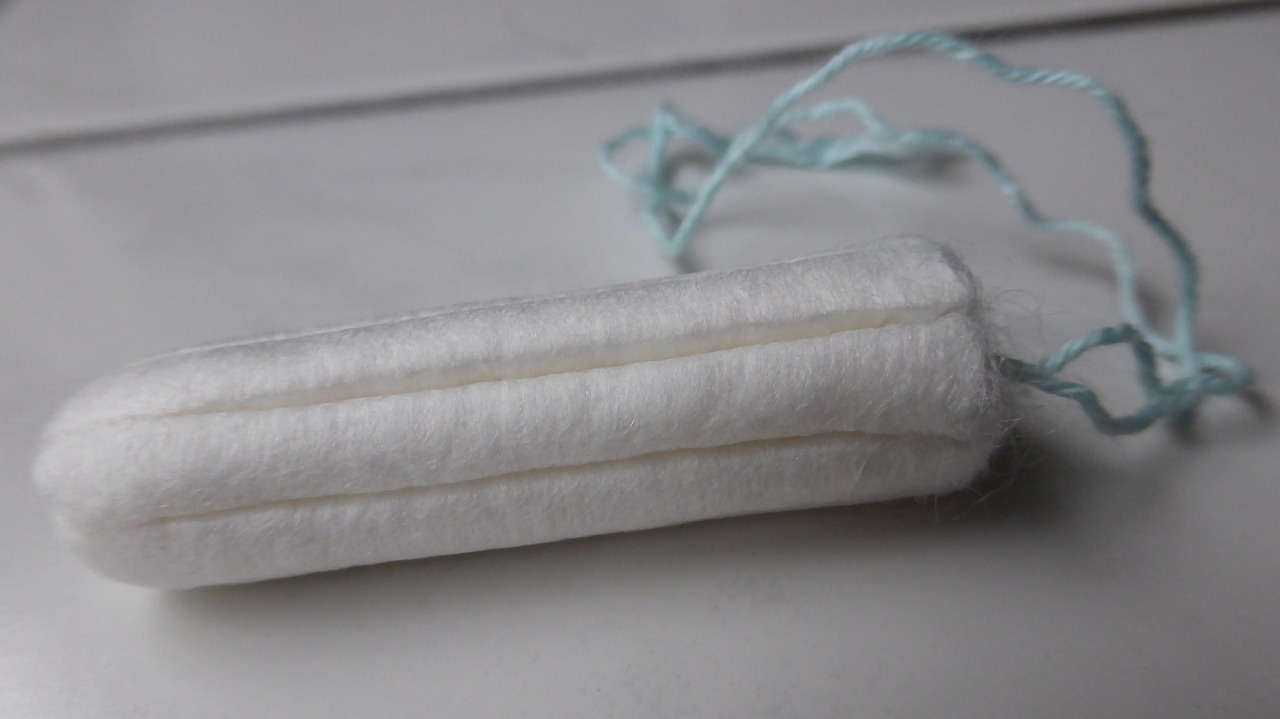
Maintaining Healthy Skin
Women are often more susceptible to skin issues due to hormonal changes. Regular cleansing and skincare routines can help prevent acne, breakouts and other skin problems.
Skin health can be a significant concern, particularly for women who often experience hormonal changes throughout their lives. These hormonal fluctuations can lead to various skin issues, but maintaining a consistent and effective skincare routine can be a powerful defense against problems like acne, breakouts and more.
Hormonal Changes and Skin Health:
Women’s hormones, such as estrogen and progesterone, play a pivotal role in regulating various bodily functions, including skin health. Hormonal changes can occur during puberty, menstruation, pregnancy, menopause and even due to factors like stress and birth control use. These fluctuations can lead to increased oil production, clogged pores and heightened sensitivity, making the skin more prone to issues like acne and breakouts.
The Role of Skincare:
A well-established skincare routine can help women navigate these hormonal shifts and maintain healthy, radiant skin. Here’s how:
Cleansing: Regular cleansing is the foundation of good skincare. It removes dirt, oil, makeup and environmental pollutants that can clog pores and lead to breakouts. Choose a gentle cleanser suitable for your skin type and cleanse your face twice daily to keep your skin fresh and clear.
Exfoliation: Exfoliation helps remove dead skin cells that can accumulate on the skin’s surface, contributing to dullness and clogged pores. However, be cautious not to over-exfoliate, as this can irritate the skin. Use exfoliating products (scrubs or chemical exfoliants) 1-2 times a week or as recommended by a dermatologist.
Hydration: Keeping the skin adequately hydrated is essential. Moisturizers help maintain the skin’s natural barrier and prevent excessive dryness or oiliness. Opt for a moisturizer that suits your skin type (dry, oily, combination) to strike the right balance.
Sun Protection: Sunscreen is a non-negotiable element of skincare. UV rays can worsen skin issues, especially for those prone to pigmentation, premature aging or skin sensitivities. Apply a broad-spectrum sunscreen with SPF 30 or higher daily, regardless of the weather.
Spot Treatments: For women dealing with hormonal acne, spot treatments containing ingredients like salicylic acid or benzoyl peroxide can help manage breakouts. Consult with a dermatologist for tailored recommendations.
Consult a Dermatologist: If hormonal skin issues persist or become severe, consider consulting a dermatologist. They can provide personalized skincare advice and may recommend medical treatments or prescription medications to address specific concerns.
Lifestyle Factors: Managing stress through relaxation techniques, maintaining a balanced diet, staying hydrated and getting adequate sleep can also positively impact skin health, as stress and lifestyle choices can influence hormonal balance.
Consistency Is Key:
Consistency is the cornerstone of effective skincare. Stick to your skincare routine, even when your skin is behaving well, to maintain its health and prevent future issues. Additionally, be patient and give products time to work—changes in the skin often take weeks to become noticeable.
In conclusion, women may experience skin issues due to hormonal changes, but a diligent skincare routine can help manage and prevent these concerns. By cleansing, exfoliating, moisturizing, protecting from the sun and seeking professional advice when needed, women can enjoy healthy, radiant skin throughout their lives, regardless of hormonal fluctuations.
If you’d like to dive deeper into this subject, there’s more to discover on this page: Menstrual Health and Hygiene
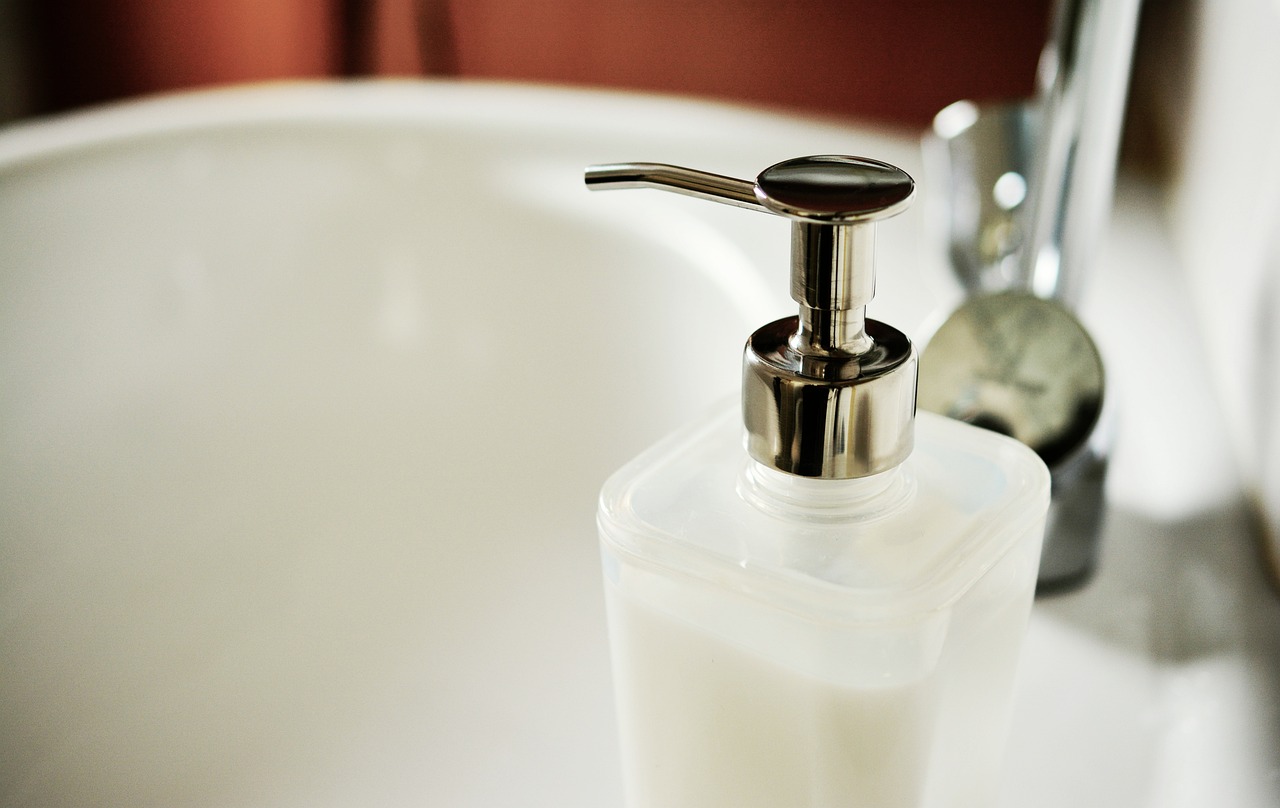
Boosting Confidence
Good personal hygiene promotes self-confidence. Knowing that you are clean and fresh can have a positive impact on your self-esteem and interactions with others.
Indeed, the link between good personal hygiene and self-confidence is undeniable and the ripple effect on various aspects of your life is profound. Here’s an extended exploration of this idea:
1. Positive Self-Image: Good personal hygiene is an integral component of self-care. When you take the time to groom, bathe and dress well, it sends a powerful message to yourself that you deserve care and attention. This contributes to a positive self-image, fostering self-love and self-acceptance. When you feel good about yourself, your confidence soars.
2. Enhanced Physical Comfort: Good hygiene practices, such as regular bathing and clean clothing, ensure physical comfort. Being physically comfortable allows you to focus your energy and attention on tasks and interactions rather than feeling self-conscious about your appearance or odor. This comfort promotes self-assuredness and ease in social situations.
3. Positive Feedback Loop: Maintaining good personal hygiene often leads to positive feedback from others. When you look and smell fresh, people are more likely to respond positively to your presence, which, in turn, boosts your self-esteem. This positive reinforcement can create a self-perpetuating cycle of increased self-confidence.
4. Better Health: Good personal hygiene is not just about appearances; it’s also about health. Regular handwashing, dental care and cleanliness in general contribute to physical well-being. Knowing that you are taking care of your health through these practices can boost your confidence in your body’s ability to perform at its best.
5. Improved Social Interactions: Confidence in your hygiene allows you to engage more comfortably in social interactions. You can focus on the conversation or activity at hand rather than worrying about your appearance or scent. This ease in social settings can lead to stronger connections and relationships with others.
6. Professional Success: Good personal hygiene is often a requirement in professional settings. When you present yourself well, you’re more likely to make a positive impression on colleagues, superiors and clients. This can lead to career advancement and opportunities, further reinforcing your self-confidence.
7. Emotional Well-Being: Feeling clean and fresh has a direct impact on your emotional well-being. It can reduce stress and anxiety associated with concerns about hygiene, allowing you to approach life with a more optimistic and relaxed mindset.
8. Empowerment: Good personal hygiene is an empowering act. It reflects your ability to take control of your appearance and health. This sense of empowerment extends beyond hygiene and can inspire you to take charge of other aspects of your life, contributing to an overall sense of personal mastery.
In summary, good personal hygiene is not just a matter of cleanliness; it’s a pathway to self-confidence and well-being. It influences how you perceive yourself and how others perceive you, impacting your relationships, career and overall quality of life. Embracing good hygiene practices is a tangible and transformative way to enhance your self-confidence and create a more positive and empowered sense of self.
Should you desire more in-depth information, it’s available for your perusal on this page: SAMHSA’s Concept of Trauma and Guidance for a Trauma-Informed …

Empowering Choices and Practices
Empowering women to make informed choices about their personal hygiene is essential. Here are some empowering practices and choices to consider:
Empowering women to make informed choices about their personal hygiene is not only essential for their physical well-being but also for their overall confidence and self-esteem. When women have access to knowledge and options related to personal hygiene, they can lead healthier, more fulfilling lives. Here are some empowering practices and choices to consider:
Education and Awareness: Knowledge is power. Start by educating women about their bodies and hygiene needs. Provide information on menstruation, sexual health and general personal hygiene. Promote open and honest conversations about these topics to remove the stigma and encourage questions.
Access to Hygiene Products: Ensure that women have easy access to essential hygiene products like sanitary pads, tampons and menstrual cups. Lack of access to these items can lead to discomfort and health issues.
Choice of Menstrual Products: Empower women to choose the menstrual products that best suit their needs and preferences. Some may prefer reusable options like cloth pads or menstrual cups for environmental and economic reasons, while others may prefer disposable products for convenience.
Safe and Clean Sanitation Facilities: Access to clean and safe sanitation facilities is crucial for women’s hygiene. Advocate for improved public restroom facilities, especially in low-income areas and ensure they are equipped with proper hygiene amenities.
Personalized Skincare: Encourage women to develop personalized skincare routines that cater to their skin type and concerns. This includes choosing the right cleansers, moisturizers and sunscreens to maintain healthy skin.
Choice in Haircare: Women should have the freedom to choose their preferred haircare routines and products, whether that involves natural hair, chemical treatments or any other choice. Promote haircare practices that enhance self-expression and individuality.
Consent and Bodily Autonomy: Empower women to make choices about their bodies, including decisions related to intimate hygiene and grooming. Respect for bodily autonomy and consent is essential.
Mental Health and Self-Care: Recognize that personal hygiene is not just about physical cleanliness. Promote self-care practices that include mental and emotional well-being, such as mindfulness, stress management and seeking support when needed.
Hygiene in Sexual Health: Encourage regular check-ups and safe sexual practices. Empower women to take control of their sexual health, make informed decisions and use protection when necessary.
Environmental Consciousness: Educate women about eco-friendly hygiene choices that reduce their environmental impact. This includes using sustainable hygiene products and reducing single-use plastic waste.
Community Support: Create a supportive community where women can share experiences, knowledge and advice about personal hygiene. Peer support can be incredibly empowering.
Inclusivity and Diversity: Embrace diversity and inclusivity in discussions about personal hygiene. Recognize that women come from different backgrounds, cultures and identities and their hygiene needs may vary.
By promoting these empowering practices and choices, we can help women take control of their personal hygiene and lead healthier, more confident lives. Empowerment begins with knowledge and the freedom to make informed decisions about one’s own body and well-being.
Don’t stop here; you can continue your exploration by following this link for more details: A Three-Dimensional Model of Women’s Empowerment …
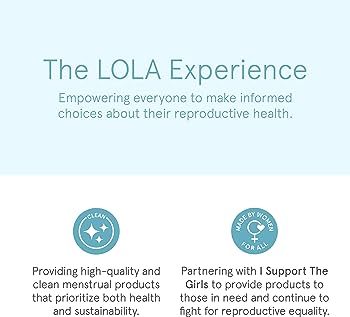
Educational Resources
Women should have access to accurate and comprehensive information about personal hygiene. Healthcare providers, reputable websites and educational materials can be valuable sources of knowledge.
Women should have access to accurate and comprehensive information about personal hygiene. In today’s digital age, information is more accessible than ever, but it’s essential to ensure that the information you rely on is trustworthy and evidence-based.
Healthcare providers are invaluable sources of knowledge when it comes to personal hygiene. They can provide personalized guidance based on your individual needs and circumstances. Don’t hesitate to ask questions during your appointments, as they can offer tailored advice and recommendations to help you maintain optimal hygiene practices.
Reputable websites and educational materials can also be valuable resources for women seeking information on personal hygiene. However, it’s crucial to critically evaluate the sources you consult. Look for websites affiliated with reputable healthcare organizations, government agencies or established medical institutions. Peer-reviewed articles and publications are typically more reliable than anecdotal accounts or unverified claims.
Additionally, consider seeking information from women’s health organizations and forums where individuals share their experiences and insights. Engaging in discussions and asking questions in a supportive community can help you access practical advice and real-world tips.
Remember that personal hygiene is not only about physical cleanliness but also about overall well-being. It’s about understanding your body and its unique needs. By seeking accurate and comprehensive information from trusted sources, you empower yourself to make informed decisions that promote your health, comfort and confidence. So, take the initiative to educate yourself, ask questions and share knowledge with others, fostering a community of empowered women who prioritize their personal hygiene and well-being.
For additional details, consider exploring the related content available here Empowering Women Is Smart Economics — Finance & Development …
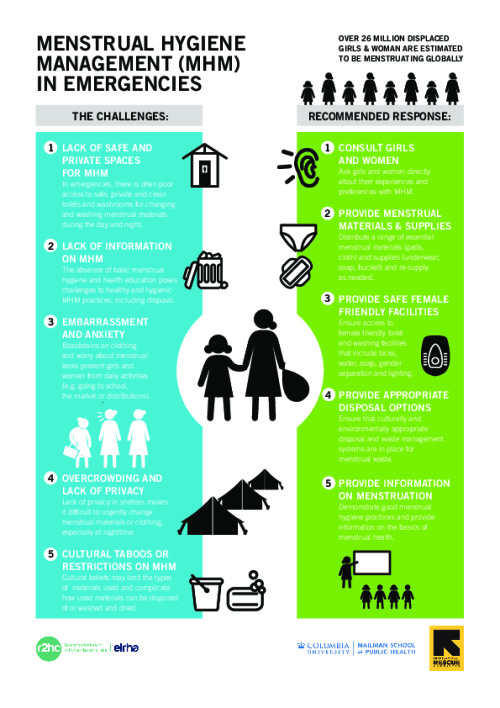
Choice of Products
Women have a wide array of personal hygiene products to choose from, including soaps, shampoos, menstrual hygiene products and more. It’s essential to select products that are suitable for one’s skin type and body.
Women today have a diverse range of personal hygiene products at their disposal, catering to various aspects of their self-care routines. These products, which encompass everything from soaps and shampoos to menstrual hygiene items and beyond, provide a multitude of options to meet different needs. In navigating this vast array of choices, making informed decisions about personal hygiene products is paramount. Here’s why selecting products that suit one’s skin type and body is essential:
Skin Sensitivity: Skin varies from person to person, with some individuals having sensitive skin that’s prone to irritation or allergies. Choosing products designed for sensitive skin can help prevent adverse reactions like redness, itching or dryness. Conversely, those with oily or acne-prone skin may require different formulations to address their unique needs.
Hair Care: Hair type and texture can greatly influence the choice of shampoos and conditioners. People with curly, straight, coarse or fine hair may need specialized products that cater to their specific requirements, ensuring optimal cleansing, hydration and styling results.
Menstrual Health: Menstrual hygiene products are a crucial part of a woman’s self-care routine. Options like pads, tampons, menstrual cups and period underwear offer different levels of comfort, convenience and eco-friendliness. Selecting the right product can enhance comfort during menstruation and minimize environmental impact.
Allergies and Sensitivities: Allergic reactions to certain ingredients, such as fragrances or preservatives, can lead to discomfort and skin issues. Understanding one’s sensitivities and opting for hypoallergenic or fragrance-free products can mitigate the risk of adverse reactions.
Environmental Impact: Increasingly, women are considering the environmental impact of personal hygiene products. Eco-conscious options, such as biodegradable soaps, shampoo bars and reusable menstrual products, align with sustainability goals, reducing waste and minimizing harm to the planet.
Ethical Considerations: Some individuals prioritize ethical factors when choosing personal hygiene products. They may prefer products from companies that emphasize cruelty-free practices, use sustainable sourcing or support fair labor practices.
Health and Wellness: Women’s health needs can change over time due to factors like age, pregnancy or specific medical conditions. Selecting products that align with changing health requirements ensures optimal care and comfort.
Personal Preferences: Beyond skin type and health considerations, personal preferences play a significant role in product selection. These include factors such as scent, texture, packaging and ease of use. Tailoring choices to personal preferences enhances overall satisfaction with the products used.
Cost and Accessibility: Budget constraints and product availability can influence choices. Identifying affordable yet effective options and exploring various brands can help balance cost considerations without compromising on quality.
Holistic Self-Care: Ultimately, personal hygiene products are an integral part of holistic self-care. Selecting products that align with individual needs and preferences contributes to overall well-being, fostering a sense of comfort, confidence and self-care satisfaction.
In summary, women have the privilege of an extensive array of personal hygiene products to choose from, enabling them to personalize their self-care routines. To make the most of these choices, it’s essential to consider skin type, sensitivities, health needs, sustainability goals, ethical values and personal preferences. By selecting products thoughtfully, women can ensure that their self-care routines are not only effective but also tailored to their unique bodies and lifestyles, promoting a healthier and more satisfying approach to personal hygiene.
Should you desire more in-depth information, it’s available for your perusal on this page: Menstrual Health and Hygiene
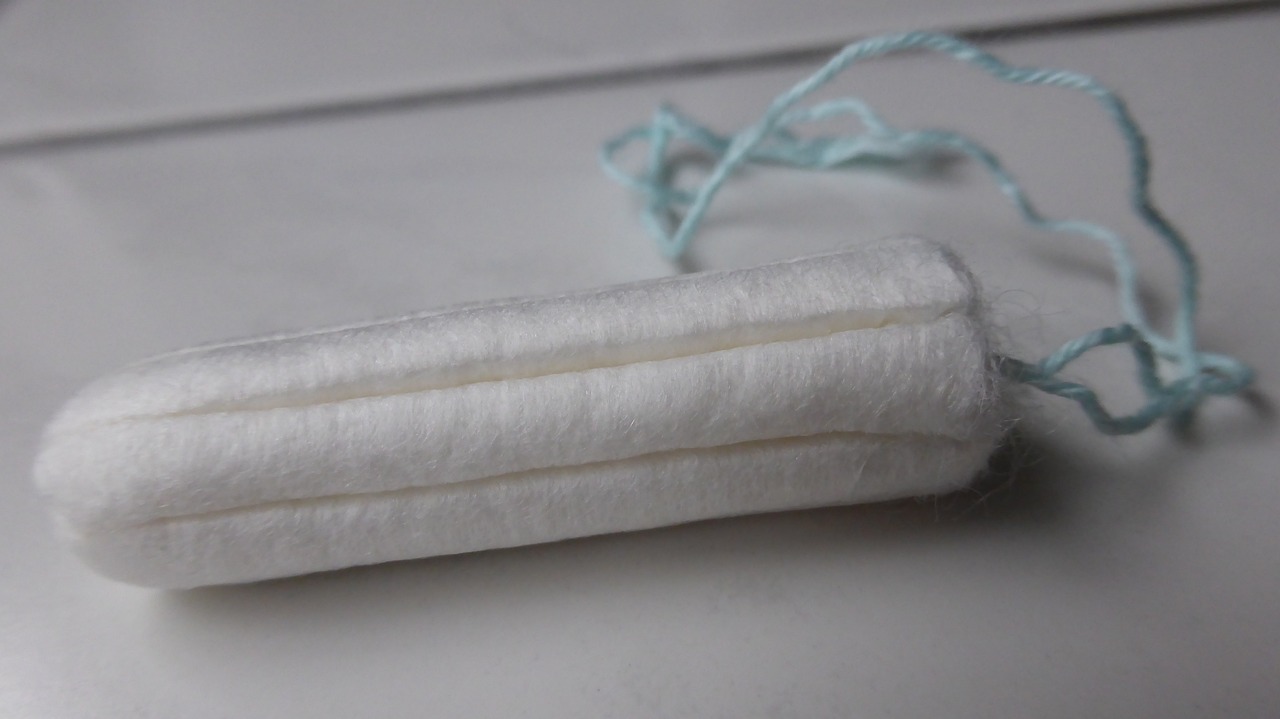
Menstrual Hygiene Options
Explore various menstrual hygiene options, such as reusable cloth pads, menstrual cups or period panties. Choosing a product that aligns with your preferences and lifestyle can be empowering.
Diving into the world of menstrual hygiene options offers not only practical solutions but also a sense of empowerment and control over your menstrual experience. Here’s why exploring different choices and finding the right one for you is a liberating journey:
Personalized Comfort: Every person’s body is unique and what works best for one may not suit another. By exploring various menstrual hygiene options, you can tailor your choice to your body’s specific needs and your comfort preferences.
Environmental Impact: Sustainable menstrual products like reusable cloth pads, menstrual cups and period panties have a significantly lower environmental footprint compared to disposable alternatives. By choosing an eco-friendly option, you contribute to reducing menstrual waste and minimizing your impact on the planet.
Financial Freedom: While the initial cost of some reusable products may be higher, they are long-lasting and can save you money in the long run. Over time, the investment in reusable menstrual products can translate into substantial savings, providing financial freedom.
Health and Wellness: Many eco-friendly menstrual options are made from materials that are gentle on your skin and reduce the risk of irritation or allergies. Additionally, they don’t contain harmful chemicals often found in disposable products, promoting better reproductive and overall health.
Empowerment and Knowledge: Learning about various menstrual hygiene options empowers you with knowledge and choice. You become more in tune with your body’s needs and can confidently select the product that aligns with your menstrual flow, lifestyle and values.
Reduced Discomfort: The right menstrual product can significantly reduce discomfort during your period. Menstrual cups, for example, offer leak protection and can be worn for longer periods, providing convenience and peace of mind.
Convenience and Accessibility: Exploring different options allows you to find the most convenient and accessible solution for your lifestyle. Whether you prefer something you can wear internally like a menstrual cup or the simplicity of period panties, you can adapt your choice to your daily routine.
Connection with a Community: The journey of exploring menstrual hygiene options connects you with a community of like-minded individuals who prioritize sustainability, health and empowerment. Sharing experiences and advice within this community fosters support and camaraderie.
Reduced Stigma: By embracing and discussing various menstrual options openly, you contribute to reducing the stigma surrounding menstruation. This normalization of menstruation is an essential step toward menstrual equity and breaking taboos.
In summary, the act of exploring menstrual hygiene options is more than just selecting a product; it’s a journey of self-discovery and empowerment. It allows you to make choices that align with your values, promote sustainability and prioritize your comfort and well-being. So, embrace this journey and let it empower you to have a healthier, more eco-conscious and liberating menstrual experience.
Should you desire more in-depth information, it’s available for your perusal on this page: Menstrual Health and Hygiene
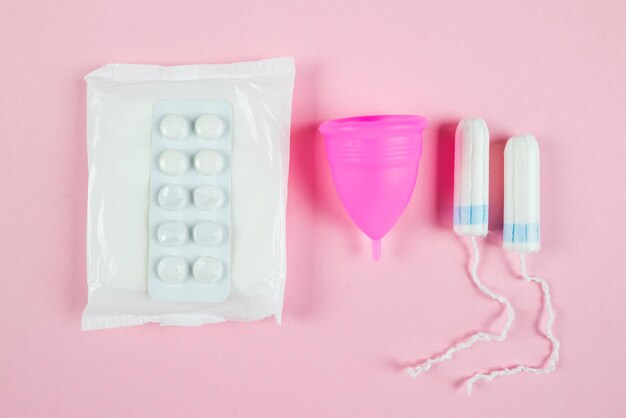
Healthy Diet and Hydration
A balanced diet and proper hydration are fundamental to overall health, including personal hygiene. Drinking plenty of water and consuming nutritious foods can promote healthy skin and prevent issues like bad breath.
A balanced diet and proper hydration are fundamental to overall health, including personal hygiene and their impact reaches far beyond just physical well-being. When you prioritize consuming a well-rounded diet and staying adequately hydrated, you’re not only nourishing your body but also taking significant steps towards enhancing your overall quality of life.
One of the key aspects of this holistic approach is the effect it has on your skin. Your skin is a reflection of your internal health and what you put into your body is often as important as what you apply topically. Drinking plenty of water helps keep your skin hydrated from the inside out, giving it a natural glow and suppleness. This hydration can also assist in the body’s natural detoxification processes, leading to clearer and healthier skin.
Furthermore, a diet rich in essential nutrients, vitamins and antioxidants can work wonders for your skin. Nutrient-dense foods such as fruits, vegetables, lean proteins and whole grains provide the building blocks for healthy skin cells. They also help combat oxidative stress, which can lead to premature aging and skin issues.
Incorporating these dietary habits not only supports healthy skin but also plays a significant role in preventing issues like bad breath. Hydration is essential for maintaining saliva production, which is a natural defense against oral bacteria responsible for causing bad breath. Additionally, certain foods, such as crunchy fruits and vegetables, can help clean teeth and freshen breath.
In summary, by embracing a balanced diet and staying adequately hydrated, you are not only investing in your physical health but also in your personal hygiene, skin and overall well-being. It’s a holistic approach to self-care that yields benefits beyond the superficial, ultimately contributing to a happier and healthier you.
If you’d like to dive deeper into this subject, there’s more to discover on this page: College Students and Eating Habits: A Study Using An Ecological …

Regular Check-ups
Routine visits to a healthcare provider, including gynecologists, are crucial for women’s health. These professionals can address concerns, provide guidance on hygiene practices and screen for potential health issues.
Routine visits to healthcare providers, including gynecologists, play a pivotal role in safeguarding women’s health throughout their lives. These dedicated professionals serve as invaluable partners in women’s healthcare journeys, offering not only medical expertise but also guidance and support. Here’s why these routine visits are essential:
1. Preventive Care: Regular visits to healthcare providers are the cornerstone of preventive healthcare. Gynecologists, in particular, focus on women’s reproductive health and can offer vital screenings and vaccinations. These preventive measures can detect health issues early, when they are most treatable or even prevent them altogether. For example, regular Pap smears and mammograms can help detect cervical and breast cancer in their early stages.
2. Personalized Guidance: Healthcare providers, including gynecologists, are valuable sources of information and guidance tailored to a woman’s specific health needs. They can offer advice on family planning, contraception options and reproductive health. They also provide information on menstrual health, menopause and sexual health, helping women make informed decisions about their bodies and lifestyles.
3. Addressing Concerns: Routine visits provide a platform for women to address any health concerns or questions they may have. Whether it’s discomfort, pain, irregular periods or changes in reproductive health, healthcare providers are there to listen, diagnose and recommend appropriate treatments or lifestyle adjustments.
4. Comprehensive Care: Women’s health extends beyond reproductive concerns. Routine healthcare visits encompass a wide range of health aspects, including heart health, bone health, mental health and more. Healthcare providers can offer guidance on maintaining overall well-being, ensuring that women receive comprehensive care.
5. Guidance on Hygiene Practices: Gynecologists and other healthcare providers can educate women about proper hygiene practices specific to their reproductive and sexual health. This includes guidance on vaginal care, contraception methods and managing infections. Such advice helps women maintain good hygiene, preventing potential health issues.
6. Mental Health Support: Women’s health is not just about physical well-being; it also encompasses mental and emotional health. Healthcare providers can screen for mental health conditions, offer counseling and refer patients to specialists when needed. Addressing mental health is crucial for maintaining overall wellness.
7. Lifelong Health: Routine visits to healthcare providers are essential throughout a woman’s life, from adolescence through adulthood and into the senior years. Regular check-ups ensure that health concerns are identified and managed at every stage, contributing to a lifetime of well-being.
8. Advocacy and Empowerment: Healthcare providers can serve as advocates for women’s health rights and empowerment. They can offer guidance on self-examinations, provide information about available healthcare resources and encourage women to take an active role in their health decisions.
In conclusion, routine visits to healthcare providers, especially gynecologists, are not just medical appointments; they are essential steps in the journey to women’s health and well-being. These visits offer preventive care, personalized guidance and a supportive environment for addressing concerns. They empower women to make informed decisions about their health, ensuring that they can enjoy vibrant and healthy lives at every stage. Prioritizing these visits is a proactive step towards a brighter and healthier future.
If you’d like to dive deeper into this subject, there’s more to discover on this page: High-quality health systems in the Sustainable Development Goals …
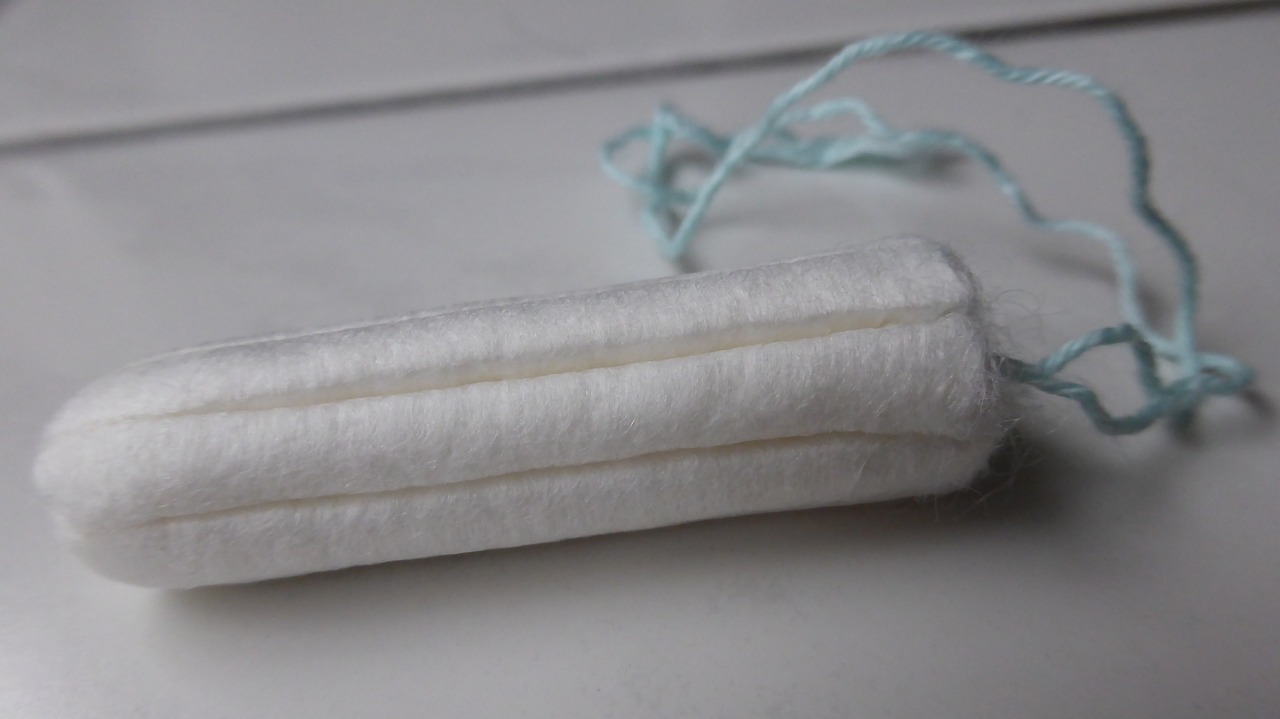
Body Positivity
Embrace your body and its natural functions. Women’s bodies go through various changes throughout their lives and it’s essential to be kind to yourself and practice self-acceptance.
Embrace your body and its natural functions. Women’s bodies go through various changes throughout their lives and it’s essential to be kind to yourself and practice self-acceptance. Here’s why this self-compassionate approach is not only beneficial but empowering:
Celebrate Life Stages: Women experience a multitude of life stages, from puberty to menopause and beyond. Each stage comes with its unique set of physical changes and challenges. Embracing these stages allows you to celebrate the remarkable journey your body takes, highlighting your resilience and adaptability.
Body Positivity: Self-acceptance is a cornerstone of body positivity. Instead of aspiring to unrealistic beauty standards, acknowledge and celebrate your unique features. Loving yourself as you are can lead to increased self-esteem and a positive body image.
Mental Well-being: A healthy body image is closely linked to mental well-being. When you practice self-acceptance, you reduce the risk of developing negative body image issues, such as body dysmorphia or eating disorders. This, in turn, fosters better mental health and emotional stability.
Physical Health: Embracing your body encourages you to take better care of it. When you appreciate your body’s resilience and vitality, you’re more likely to engage in healthy habits such as regular exercise, a balanced diet and adequate rest.
Stress Reduction: Self-acceptance can help reduce stress and anxiety. By letting go of unrealistic expectations and focusing on self-care, you create a more relaxed and positive relationship with your body. This can alleviate the mental and emotional strain associated with body dissatisfaction.
Fertility and Reproductive Health: Women’s bodies are uniquely equipped for fertility and reproduction. Embracing the natural rhythms and processes of your body can enhance your understanding of your menstrual cycle and overall reproductive health. This knowledge empowers you to make informed decisions about family planning and reproductive care.
Empowerment: Self-acceptance is empowering. It allows you to confidently navigate the various challenges and transitions in your life, whether it’s pregnancy, motherhood, aging or any other stage. When you embrace your body, you gain a sense of agency over your own well-being.
Resilience: Women’s bodies are incredibly resilient. They can endure and recover from significant physical changes, such as childbirth or surgery. By acknowledging and appreciating your body’s ability to heal and adapt, you can approach challenges with confidence and strength.
Positive Role Model: Practicing self-acceptance sets a positive example for the people around you, especially for younger generations. It encourages them to embrace their bodies and value themselves for who they are, promoting a culture of self-love and body positivity.
Improved Relationships: When you accept and love your body, you’re better equipped to cultivate healthy and meaningful relationships. Your self-confidence and self-assuredness can positively impact your interactions with others and foster deeper connections.
In a world where societal pressures often dictate unrealistic beauty standards, embracing your body and practicing self-acceptance is a powerful act of self-love and empowerment. It allows you to focus on your overall well-being, mental health and happiness, ultimately leading to a more fulfilling and purposeful life. By cherishing your body for all that it is, you pave the way for a healthier, more confident and more joyful journey through life’s many stages and experiences.
Explore this link for a more extensive examination of the topic: The Impact of Choice and Control on Women’s Childbirth …
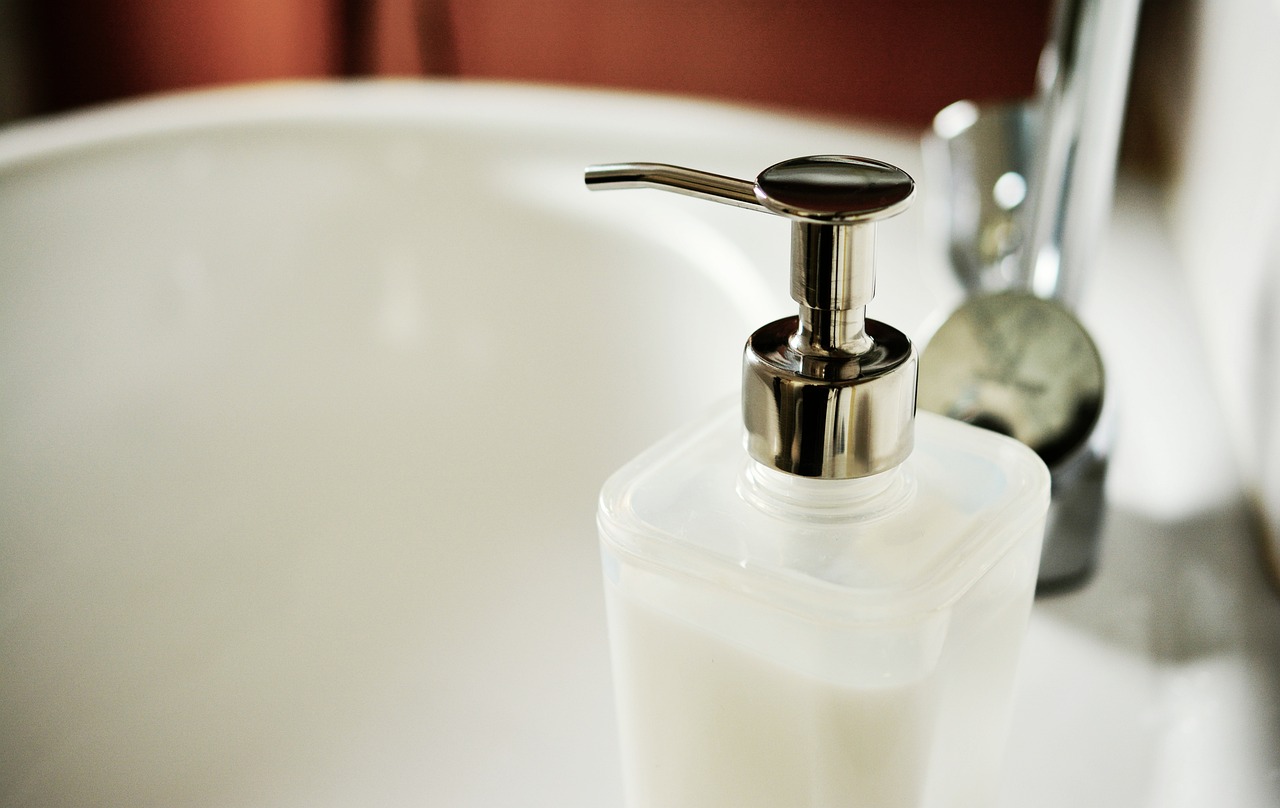
Women’s personal hygiene is more than just a set of practices; it’s about empowerment and self-care. By making informed choices, embracing healthy practices and seeking education and support, women can take charge of their personal hygiene and, in turn, their overall well-being. Empowered women are not only healthier but also more confident and that confidence radiates in all aspects of their lives, contributing to a positive and empowered future.
Women’s personal hygiene transcends mere routines; it’s a powerful avenue for empowerment and self-care. Here’s a deeper exploration of how women can harness this aspect of their lives to foster empowerment and holistic well-being:
Informed Choices: Women’s empowerment in personal hygiene begins with informed choices. By educating themselves about the products they use, the ingredients within them and their potential health impacts, women can make decisions that align with their values and health goals. Informed choices empower women to take control of their bodies and make decisions that are right for them.
Embracing Healthy Practices: Personal hygiene practices extend far beyond physical cleanliness. They encompass emotional and mental well-being as well. For example, practicing self-compassion and embracing positive body image are integral components of personal hygiene. By prioritizing these practices, women boost their self-esteem and inner strength, contributing to a sense of empowerment.
Education and Support: Seeking education and support in personal hygiene matters is an essential part of empowerment. This includes understanding the menstrual cycle, reproductive health and the potential impact of hygiene practices on fertility and overall health. Women can empower themselves by seeking information and connecting with healthcare professionals who can provide guidance and support.
Breaking Taboos: Many societies have taboos and stigmas surrounding women’s personal hygiene topics like menstruation and sexual health. Empowered women challenge these taboos by openly discussing these issues, thereby breaking down barriers and normalizing conversations around women’s health.
Self-Advocacy: Empowerment involves advocating for oneself, especially in healthcare settings. Women who are informed about their bodies and health needs are better equipped to communicate effectively with healthcare providers and make decisions that align with their well-being and preferences.
Positive Body Image: Personal hygiene intersects with body image and self-acceptance. Empowered women celebrate their bodies in all their forms, embracing imperfections and rejecting unrealistic beauty standards. This self-love translates into confidence and radiates in their interactions with others.
Healthy Relationships: Empowerment extends to relationships. Women who prioritize personal hygiene and well-being are more likely to engage in healthy, respectful relationships that support their emotional and physical health. They recognize the importance of boundaries and self-respect in all interactions.
Confidence and Leadership: Empowerment through personal hygiene contributes to increased confidence, which is a vital asset in both personal and professional life. Empowered women often exhibit leadership qualities and inspire others through their self-assuredness and resilience.
Community Building: Women who prioritize personal hygiene can play a crucial role in community building. They can share their knowledge and experiences to empower other women, creating a ripple effect of positive change and well-being within their communities.
In conclusion, women’s personal hygiene is a pathway to empowerment and self-care that encompasses physical, emotional and mental well-being. By making informed choices, embracing healthy practices, seeking education and support and challenging societal taboos, women can not only enhance their personal health but also empower themselves and others. Empowered women are confident, resilient and poised to shape a brighter and more equitable future for themselves and society as a whole.
To delve further into this matter, we encourage you to check out the additional resources provided here: Empowering Women Is Smart Economics — Finance & Development …
More links
Looking for more insights? You’ll find them right here in our extended coverage: Empowering women to practice self-care | MSF
